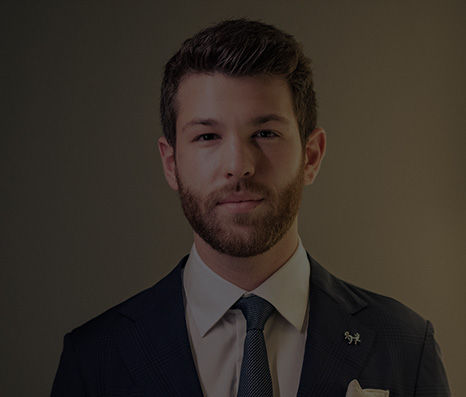
On this page
Luxury Management
Discover more about what makes the luxury business tick, some of the secrets to success, and the exciting careers that can be found in luxury management.
Quick facts
→ Luxury management is the strategic oversight of premium, exclusive, high-end experiences.
→ Luxury brand management emphasizes the importance of brand image, which includes history, craftsmanship, emotion and more.
→ Luxury management offers varied career opportunities such as management in luxury hotels, marketing in luxury retail, or guest relations and events.
What is luxury management?
Luxury management is a description which encompasses all aspects of the global luxury industry. That is to say it takes in sectors such as luxury apparel and accessories, watches, 5 star hospitality, private/bespoke travel, prestige and sports cars, plus related areas such as wealth management and real estate markets.
As such, luxury management offers an exciting career path with an almost unlimited international potential.
What is the importance of luxury management?
Luxury management plays a huge role in today’s global economy, where discerning consumers seek premium experiences and products. All these venues and businesses need careful management to ensure that they are successful in this competitive field.
With the luxury market continually evolving and expanding, professionals in this field are in high demand, offering ample opportunities for career growth and advancement in luxury brands, hospitality, fashion and beyond. Choosing to study luxury management ensures a rewarding and dynamic career path at the forefront of the luxury industry’s innovation and excellence.

What is luxury brand management?
The power of the brand is everything in luxury management. It can take decades or even centuries to establish a true luxury brand, but only one wrong step to destroy its equity. Thus, luxury brand managers have a vital – and very high profile – role to play in preserving this all-important asset.
A luxury brand image has many component parts – history, quality, craftsmanship, emotion, rarity, and more – which a brand manager must harness, develop and above all preserve through their strategies and actions. Their work will encompass traditional and social media, as well as aspects such as retail merchandising.
The unique nature of luxury means the dynamics of brand strategy are different from managing a more mainstream, mass-market brand and requires an appreciation of how luxury works in order to be successful.

What does a Luxury brand manager do?
This role oversees the brands of a company. It includes planning and executing strategies to build customer loyalty and trust. These strategies can incorporate targeted marketing and promotional campaigns, as well as product launches and promotional events.
What is the difference between luxury management and luxury brand management?
While both luxury management and luxury brand management focus on the high-end sector of the market, they emphasize different aspects of the luxury industry. Luxury management encompasses a broader spectrum of skills and knowledge related to managing luxury businesses, including strategic planning, operations and customer experience.
On the other hand, luxury brand management specifically centers on building, nurturing, and positioning high-end brands within the market, emphasizing marketing, company identity and consumer perception. When studying luxury brand management, you will learn the essentials of luxury business management alongside specialized techniques for brand development within the luxury sector.
Why study luxury brand management?
The answer is simple, and the same as it is for any topic: only through in-depth study can you hope to gain a foundation of knowledge and understanding that’s sufficiently solid to use as a career launchpad. Here are some of the opportunities on offer with a career in luxury brand management.
→ Career opportunities
With the luxury market experiencing steady growth globally, a degree in luxury management will open doors to a wide range of exciting career opportunities. Whether you aspire to work for the luxury goods industry, high-end retailers, luxury hospitality establishments or luxury marketing agencies, a background in brand management gives you plenty of career paths to choose from.
→ Global perspective
Luxury brand management programs often offer opportunities for international exposure, allowing you to gain a global perspective on the luxury market. Through case studies, projects and collaborations with industry partners worldwide, you’ll develop a deep understanding of the cultural nuances and market dynamics that shape luxury consumption patterns across different regions.
→ Networking opportunities
Engaging with industry professionals, guest speakers and alumni networks as part of your luxury brand management program provides invaluable networking. Building relationships with leaders and experts in the luxury sector can lead to internships, mentorships, job placements and collaborations, enhancing your career prospects.
→ Boost your employability
Having a luxury-oriented degree from a recognized institution shows prospective employers that you are serious about your topic, having committed significant study time to it. The skills you learn will also help you land a job.
→ Getting hands-on experience
One way to obtain hands-on experience is by studying at an institution which is deeply embedded within the industry and thus enjoys close relationships with key players. By doing so, you’ll have more opportunities to access roles which are not always promoted publicly.
→ Specialized expertise
Studying luxury brand management provides you with skills and professional experience tailored to the unique demands of the luxury industry. From understanding the nuances of luxury consumer behavior to mastering the art of brand storytelling and exclusivity, this focused education equips you with the knowledge and skills essential for careers in luxury management.
Embark on a journey of luxury and leadership with Glion’s Master’s in Luxury Management and Guest Experience

What do you study in luxury brand management?
Your luxury brand management curriculum will depend on whether you are studying at Bachelor’s or Master’s level.
Bachelor’s degrees
If luxury is part of your Bachelor’s degree – perhaps as a specialization, like with Glion – you can expect to explore key trends in the luxury sector; how luxury brands are developed and managed; the role of marketing, including digital marketing; and how service excellence contributes to brand loyalty.
Master’s degrees
There are also several luxury-focused Master’s degrees to choose from. These all have their own characteristics and curricula, so your research will be a comparative exercise until you find the program that best suits your interests and career aims.

Topics you will learn on a Glion luxury program
★ Business trends in luxury hotels, resorts and events
★ Luxury fashion design
★ Intercultural leadership
★ Digital transformation & data analytics
★ Sustainable luxury & design
★ Digital marketing in the luxury industry
★ Strategic management of luxury brands
★ Retail management
Careers in luxury brand management
Your career path in luxury brand management will vary depending on which branch of the industry you are targeting, and there is a wide range of luxury sectors to choose from.
In luxury hospitality, the pathway is similar to that found in the mass-market segment – i.e. you will enter the business at an operational level and then move up through the ranks as you gain experience.
In the luxury goods industry, the proven pathway is via the retail operation. For luxury brands, such as Louis Vuitton, retail stores account for around 90% of employees. Working in store lets you become familiar with the customers, the ‘personality’ of the brand and, of course, the products themselves.
This foundation of knowledge is essential if you are aiming to join the ranks of managers in luxury business.
Other careers in luxury brand management
There are plenty of other job roles that you could look at, including:
- Spa and wellness director: leads luxury spa facilities, curating exclusive wellness experiences that cater to discerning clients seeking relaxation, rejuvenation, and holistic health in a luxurious setting
- Luxury real estate agent: specializes in the buying and selling of high-end residential or commercial properties, offering expertise in luxury market trends, property valuation and delivering exceptional service to affluent clientele
- Fine dining restaurant manager: handles operations in upscale restaurants renowned for exquisite cuisine and exceptional service, overseeing staff, maintaining high standards of food quality and creating memorable dining experiences for discerning guests
- Brand ambassador: represents and promotes luxury brands through strategic marketing initiatives and client relationship management, embodying brand values and enhancing brand perception among target audiences
- Luxury marketing specialist: develops and executes tailored marketing strategies and digital transformation that elevate brand visibility and appeal within the luxury market, leveraging consumer insights and market trends to drive brand growth and engagement
- Events coordinator: plans and executes exclusive events and experiences tailored to luxury brands and their clientele, orchestrating memorable occasions that reinforce brand identity and foster client loyalty
- Customer experience manager: ensures exceptional service and satisfaction for high-net-worth clients across all touchpoints, implementing personalized service strategies to enhance customer loyalty and advocacy
Where do I start my career in Luxury?
Typical starting roles after graduation from a Bachelor’s degree include:
→ Management training for luxury hotel brand
→ Marketing Assistant in luxury retail
→ Guest Relations Executive in events
→ Asset Management Analyst for financial services company
For Master’s graduates, first jobs post-graduation will depend largely on the topic studied. For example:
→ Sales and Marketing Coordinator
→ Luxury goods (retail)
→ Client Experience Specialist
→ Brand Ambassador

Real world’ examples of luxury industry roles that Glion Alumni are occupying
★ HR Coordinator, Richemont
★ Global Luxury Sales Executive, Marriott International
★ Service Lead, Burberry
★ Team Manager, Louis Vuitton
★ Product Learning Manager, TAG Heuer
★ Client Advisor, Gucci
★ Strategic management of luxury brands
★ Global Licensing Senior Manager, Gucci
Skills and Knowledge in Luxury Management
If you want to work in the luxury sector, you should work on building skills such as:
- Exceptional customer service and relationship management
- Strong communication and interpersonal skills
- Attention to detail and a keen eye for quality
- Organizational skills and time management
- Creativity and innovation for marketing strategies
- Business acumen and strategic thinking
Studying the business of luxury provides opportunities to develop these skills through specialized coursework, professional projects and internships. Luxury management courses focus on understanding luxury consumer behavior, refining communication skills through presentations and case studies and fostering creativity in brand development.
By applying theoretical knowledge to real-world scenarios in internships, you can prepare for a successful career in the luxury industry.
How to switch careers in to Luxury
If you are looking to switch careers into the luxury sector, a good option to kickstart that process is to study a specialized degree part-time.
This means you can keep earning while you accumulate the professional knowledge you need to enter the luxury business as high up the leadership ladder as possible.






